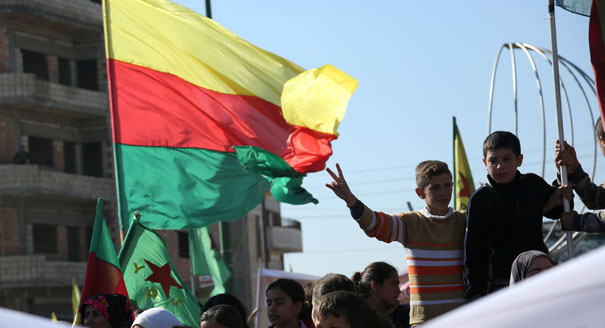On March 17, 2016, the de facto Kurdish administration in three Kurdish areas of concentration in northern Syria, the Jazira, Kobane, and Afrin, declared the establishment of a Federation of Northern Syria-Rojava. This was an attempt on their part to bring the geographically distinct areas under one political umbrella controlled by the Democratic Union Party (PYD) and its military branch, the People’s Protection Units (YPG), both closely affiliated with the Kurdistan Workers Party (PKK).
However, since March 2016, regional alliances have shifted, casting doubts on Rojava’s viability in any final solution to the Syrian conflict. Turkey deployed its army into Syria last August, establishing its own military zone, and began a rapprochement with Russia. These developments further isolated the PYD and its allies, excluding them from the recent Astana talks designed to bring about a final settlement of the Syrian conflict.
To discuss these developments, and the Rojava experience so far, Carnegie Middle East Center held a roundtable discussion at its offices in Beirut last February 13, with Fawza Yousef, the co-president of the Executive Committee of the Democratic Federal System for Rojava-Northern Syria, and committee member Naamat Agha. Yousef, a former political prisoner under the Assad regime, addressed allegations of ethnic cleansing of the Arab population, and the repression of dissent within the Kurdish community. She highlighted the tensions with the Kurdistan Regional Government in Iraq, in particular with the Kurdistan Democratic Party.
Finally, the panel discussed women’s enrollment in the fight against the Islamic State, which has altered gender relations in a conservative patriarchal society. Diwan posts the roundtable discussion, which took place in Arabic, on its English site for those who are bilingual.






